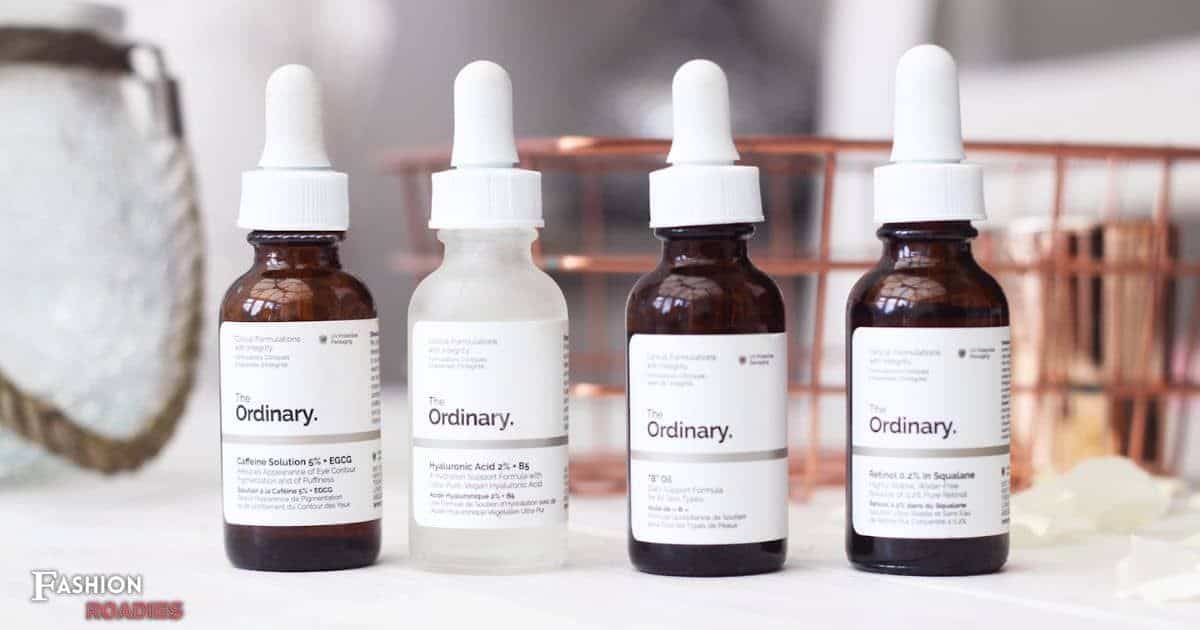Are you tired of wasting money on expired skin care products? Look no further, as we delve into the world of skin care shelf life. Discover the factors affecting how long your beloved cleansers, moisturizers, and serums last. Learn how to decode expiration dates and when it’s time to bid farewell to sunscreen and makeup. Plus, we’ll share expert tips to extend the lifespan of your skin care products. Join us on this informative journey towards long-lasting skincare success.
Key Takeaways
- The presence of preservatives and proper packaging/storage practices are crucial for preserving the effectiveness and safety of skin care products.
- Expired skin care products can pose risks such as skin irritations, allergic reactions, and breakouts.
- Understanding expiration dates and regularly checking and disposing of expired products is important for maintaining skin health.
- Proper storage methods, including avoiding exposure to air, light, and heat, can extend the shelf life and efficacy of cleansers, moisturizers, serums, sunscreen, and other skin care products.
Factors Affecting Skin Care Shelf Life
One of the key factors affecting the shelf life of skin care products is the presence of preservatives. Preservatives are added to prevent the growth of bacteria, yeast, and mold, which can lead to product spoilage and reduce efficacy. However, the use of preservatives is a delicate balance, as they can also cause skin irritation and allergic reactions in some individuals. It is essential for manufacturers to use preservatives that are effective in maintaining product safety while minimizing potential side effects. Additionally, other factors impacting efficacy include exposure to air, light, and heat, which can degrade the active ingredients in skin care products. To ensure the best practices for product preservation, manufacturers should conduct stability testing, implement proper packaging, and adhere to industry guidelines for storage and handling.
Understanding Expiration Dates on Skin Care Products
Understanding expiration dates on skin care products is crucial for ensuring their effectiveness and safety. Expired products may pose risks such as bacterial contamination or reduced efficacy, while proper storage can extend their shelf life. By familiarizing ourselves with expiration dates and storage guidelines, we can make informed decisions to maximize the benefits of our skin care routine.
Expired Product Risks
The risks associated with using expired skin care products can lead to adverse reactions and potential harm to the skin. Expired products may contain bacteria, mold, and other harmful microorganisms that can cause infections, irritations, and breakouts. Additionally, the active ingredients in these products may lose their potency over time, rendering them ineffective. It is important to understand the risks of using expired skin care and to prioritize the health and safety of your skin.
Some potential dangers of using expired skin care products include:
- Skin irritations: Expired products can cause redness, itching, burning, and inflammation.
- Allergic reactions: The ingredients in expired products may undergo chemical changes, increasing the likelihood of allergic reactions.
- Breakouts: Bacteria and other microorganisms in expired products can clog pores and lead to acne breakouts.
To ensure the effectiveness and safety of your skin care routine, it is crucial to regularly check and dispose of expired products. Always follow the recommended shelf life and expiration dates provided by the manufacturer.
Proper Product Storage
Appropriate storage methods play a crucial role in preserving the efficacy and safety of skin care products, particularly by maintaining their potency and preventing contamination. Product preservation is essential to ensure that the active ingredients remain effective and deliver the intended benefits to the skin. To emphasize the importance of proper storage, let’s consider a comparison between two scenarios: one where a skin care product is stored correctly, and another where it is not.
| Scenario | Correct Storage | Incorrect Storage |
|---|---|---|
| Potency | High | Low |
| Contamination | No | Possible |
| Effectiveness | Excellent | Poor |
As we can see from the table, maintaining product integrity through proper storage practices is vital. Now, let’s explore another aspect of skin care longevity: how long do cleansers last?
How Long Do Cleansers Last
Cleansers, like other skin care products, have a limited shelf life. The duration of their effectiveness depends on various factors, including the formulation, packaging, and storage conditions. Understanding the product expiration dates and proper storage recommendations are crucial in ensuring the efficacy and safety of cleansers for optimal skincare results.
Shelf Life of Cleansers
When considering the shelf life of skincare products, it is important to understand how long cleansers can remain effective and safe for use. The shelf life of cleansers can be influenced by various factors, such as the ingredients used, packaging, and storage conditions. Here are some key points to consider:
- Shelf life factors:
- Ingredients: Certain ingredients, like antioxidants and preservatives, can help extend the shelf life of a cleanser.
- Packaging: Airtight and opaque packaging can protect the cleanser from light and air exposure, which can degrade its effectiveness.
- Expired product risks:
- Reduced efficacy: Expired cleansers may not effectively cleanse the skin or provide the desired results.
- Potential irritants: Over time, expired cleansers can harbor bacteria and other microorganisms, increasing the risk of skin irritation or infection.
Understanding the shelf life factors and expired product risks is crucial for maintaining the effectiveness and safety of skincare products. Now, let’s explore the importance of product expiration dates.
Product Expiration Dates
The article provides an in-depth analysis of the shelf life and potential risks associated with expired cleansers, but it is now time to shift our attention to the current discussion topic: product expiration dates. Understanding the expiration dates of our skincare products is crucial for ensuring their effectiveness and safety. Proper product storage and adherence to expiration dates can help maximize their lifespan and prevent any potential risks. To help you keep track of your skincare products, here is a table outlining the average lifespan of common skincare items:
| Product | Average Lifespan |
|---|---|
| Cleansers | 1-2 years |
| Moisturizers | 6-12 months |
| Serums | 6-12 months |
| Sunscreens | 1-2 years |
| Masks | 1-2 years |
Proper Storage Recommendations
To maintain the efficacy of skincare products, it is essential to adhere to proper storage recommendations, ensuring that the items remain stored in appropriate conditions. Proper storage guidelines help to preserve the effectiveness of skincare products and extend their shelf life. Here are some best practices to follow:
- Store skincare products in a cool and dry place, away from direct sunlight and heat sources.
- Keep products tightly sealed to prevent air and moisture exposure, which can lead to oxidation and degradation.
By following these guidelines, you can ensure that your skincare products maintain their potency and effectiveness for a longer period of time. Proper storage not only helps to preserve the quality of the product but also ensures that it remains safe for use.
Now, let’s discuss the shelf life of moisturizers and serums and how long they typically last before they expire.
The Shelf Life of Moisturizers and Serums
Proper storage and handling play a crucial role in maintaining the efficacy and longevity of moisturizers and serums. Factors affecting product efficacy include exposure to air, light, and heat. It is important to store these products in a cool, dry place and avoid leaving them open for extended periods of time. Additionally, common misconceptions about expiration dates can lead to improper use of skincare products. Many people believe that once a product has expired, it becomes harmful to the skin. However, in most cases, expired products simply lose their effectiveness. To help you understand the shelf life of moisturizers and serums, refer to the table below:
| Product | Shelf Life |
|---|---|
| Moisturizers | 6-12 months |
| Serums | 6-12 months |
Knowing when to replace skincare products is essential for maintaining healthy skin. Now, let’s discuss when to replace sunscreen and SPF products.
When to Replace Sunscreen and SPF Products
Regularly evaluating the effectiveness and longevity of sunscreen and SPF products is crucial in maintaining optimal sun protection. Sunscreen is designed to protect the skin from harmful UV rays, but over time, its effectiveness can diminish. It is important to be aware of the signs of expired sunscreen to ensure that you are adequately protecting your skin. Some signs of expired sunscreen include changes in color or texture, a strange odor, or a past expiration date. Additionally, if you notice that your sunscreen is not providing the same level of protection as before, it may be time to replace it. By regularly checking the effectiveness and expiration dates of your sunscreen, you can ensure that you are adequately protecting your skin from the sun’s harmful rays. Transitioning into the subsequent section about makeup and skincare: knowing when to toss, it is equally important to regularly evaluate the effectiveness and longevity of your makeup and skincare products.
Makeup and Skin Care: Knowing When to Toss
As one transitions from discussing the evaluation of sunscreen to the subsequent topic of makeup and skincare, it is imperative to understand when to discard these products to maintain optimal skin health. Makeup expiration dates are crucial to follow, as using expired products can lead to skin irritation, breakouts, and infections. The shelf life of makeup varies depending on the type of product. Mascara and liquid eyeliner should be replaced every three to six months, while foundation and concealer can last up to a year. Lipsticks and lip glosses should be discarded after one to two years. It is also important to regularly clean and sanitize makeup brushes and sponges to prevent bacterial growth. Incorporating a consistent skincare routine that includes proper cleansing, exfoliating, moisturizing, and using sunscreen can further enhance skin health and prolong the effectiveness of your makeup products.
Tips for Extending the Lifespan of Your Skin Care Products
To ensure the longevity of your skin care and makeup products, it is essential to store them in a cool and dry place, away from direct sunlight, and regularly check for any changes in texture or scent. Proper storage can help extend the lifespan of your products and maximize their effectiveness. Here are some tips to help you get the most out of your skincare products:
- Keep them in a cool and dry place:
- Heat and humidity can degrade the active ingredients in your skincare products.
- Storing them in a cool and dry place can help maintain their potency.
- Avoid direct sunlight:
- Exposure to sunlight can cause certain ingredients to break down and lose their effectiveness.
- Keep your products in a drawer or a cabinet away from direct sunlight.
Frequently Asked Questions
Can I Still Use a Skin Care Product After Its Expiration Date?
Using expired skincare products can pose potential risks and side effects. It is recommended to check the expiration date and discard any expired products. Expired skincare may lose efficacy and could cause skin irritation or infections.
How Can I Tell if My Skin Care Product Has Gone Bad?
Expired skin care products can lead to skin irritation, infections, and reduced effectiveness. Signs of a bad product include changes in color, texture, or smell. Properly storing skin care products in a cool, dry place can help prolong their shelf life.
Is It Safe to Use Expired Sunscreen or SPF Products?
Using expired sunscreen or SPF products can potentially be unsafe. The effectiveness of sunscreen diminishes over time, increasing the risk of sunburn and skin damage. It is best to discard and replace expired products to ensure proper protection.
Can I Mix Different Skin Care Products Together to Extend Their Shelf Life?
Mixing skincare products can be tempting, but it’s important to understand the shelf life of each product. While some combinations may extend shelf life, others may cause adverse reactions. Always check expiration dates and look for signs of spoilage. Natural preservatives can help maintain product integrity.
Are There Any Natural Preservatives That Can Help Extend the Shelf Life of Skin Care Products?
Natural alternatives to chemical preservatives can help extend the shelf life of skin care products. Proper storage, such as keeping products in a cool, dry place and avoiding exposure to sunlight and moisture, is also crucial for maintaining their effectiveness and longevity.
Conclusion
In conclusion, understanding the shelf life of skin care products is crucial for maintaining their effectiveness and ensuring the best results for our skin. Factors such as expiration dates, product type, and storage conditions can all affect the longevity of our skincare products. By being aware of these factors and following proper storage guidelines, we can extend the lifespan of our products and optimize their benefits for healthier, more radiant skin.










